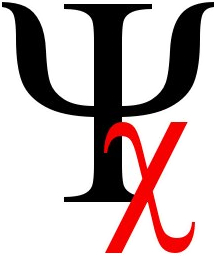Literally
the Best
Contronym Ever!
A Letter from Associate Editor
Pete Bleackley
A contronym, as collectors of linguistic trivia will be aware, is a word that is its own antonym. Many of the examples commonly given, such as cleave, meaning “stick together” vs cleave meaning “split apart”, are quite dull. There is, however, one contronym in the English language that is truly splendid, and that, of course, is literally.
|
|
 Donald A. Becker, 1982, “Teaching Basic Phonology through Phonology in BASIC,” Innovations in Linguistics Education Vol. 2, No. 2, pp. 1–27.
Donald A. Becker, 1982, “Teaching Basic Phonology through Phonology in BASIC,” Innovations in Linguistics Education Vol. 2, No. 2, pp. 1–27.
Chiasmus of the Month
May 2018
|
|
|
|
|
Consider the elegant paradox of a word meaning “exactly as stated” being a contronym. Consider the chain of semantic shifts that brought this about—“exactly as stated” being applied to statements the speaker wished to emphasize, and such emphasis being frequently applied to hyperbole. Consider how the meaning of “exactly as stated” is itself a metaphorical extension of the original sense of “as stated in writing”. Consider how context allows us to infer whether the word is meant literally or, well... literally. And consider how all this sticks two fingers up to the prescriptivists and pedants who insist on claiming, against all available evidence, that language ought to obey logical rules.
Could anything bring more delight to the heart of a satirical linguist?
If so, I sincerely hope you find it in the following pages.

